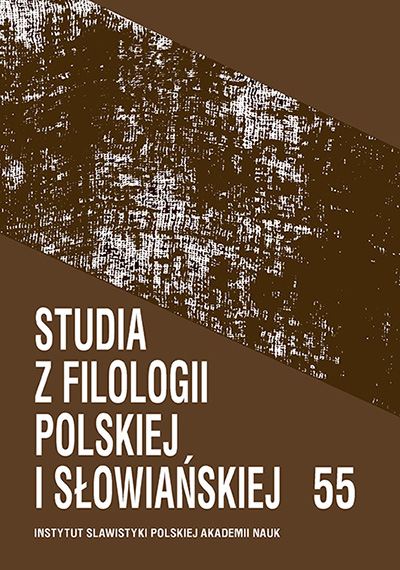Причини іронічної вербальної реакції на маніпуляцію позитивом
Causes of Ironic Verbal Response to Positive Manipulation
Author(s): Iryna Shkits′kaSubject(s): Language and Literature Studies, Applied Linguistics, Philology
Published by: Instytut Slawistyki Polskiej Akademii Nauk
Keywords: manipulative tactics of increasing of an interlocutor's significance; compliment-manipuleme; compliment-buffer; causation of an ironic verbal reaction; subject of positive evaluation
Summary/Abstract: This article analyses verbal expressions of ironic reaction to the manipulative use of compliments and speech markers of favourable attitude to the addressee. It is based on Ukrainian-language material. The study focuses on one particular type of response to the manipulative tactic of increasing the interlocutor’s significance, a glaring example of positive manipulation strategy. The tactic under consideration essentially consists in communicating information which is favourable to the interlocutor by means of compliments, praises and utterances conveying a positive attitude, employed with a view to changing the interlocutor’s behaviour or their mental state in the manipulator’s interest. The article considers verbal irony as a reaction to positive manipulation in formal and informal settings, taking into account differences in the degree of familiarity between the interlocutors, their age, gender, status, social roles and the type of relations between them. The study identifies the main reasons of ironic reactions to positive manipulation: exaggerated positive evaluation or excessively positive attitude to the addressee; unsuccessful choice of the subject of positive evaluation or the form of the compliment; marking the compliment with surprise or doubt that the addressee has certain positive qualities; the nature of the communicative situation or the content of utterances which accompany positive manipulation; requests which contradict values, norms of social conduct or intentions of the addressee; violation of distance during the conversation, in particular ignoring the level of familiarity, status and age hierarchy; negative experience of previous communicative encounters with the manipulator. The study also identifies the subjects of evaluation and the topics of manipulative compliments which provoke ironic reaction on the part of the addressee. It pinpoints the content of utterances with covert ironic reaction to manipulative praise or manipulative expression of favourable attitude. As established, the dominant semantic type of manipulative utterances which cause ironic reactions in situations of inter-gender interaction are the compliments which characterise the interlocutor’s appearance.
Journal: Studia z Filologii Polskiej i Słowiańskiej
- Issue Year: 2020
- Issue No: 55
- Page Range: 1-18
- Page Count: 18
- Language: Ukrainian

